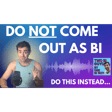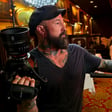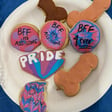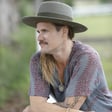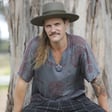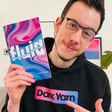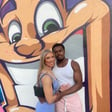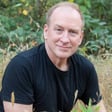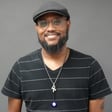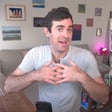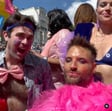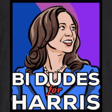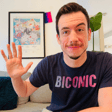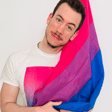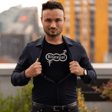
Dr. Mimi Hoang is Bi on Life!
Happy Bi+ Visibility Day and Awareness Week! There's no better way to celebrate than an interview with another true BI-CON, Dr. Mimi Hoang!
Dr. Mimi a psychologist, educator, author, and grassroots activist specializing in the LGBTQ+ and Asian Pacific Islander communities -- and she was named “one of the most significant women in the bisexual movement”! In this special episode, we chatted about her family history and bisexual journey, the multiple organizations she co-founded in Los Angeles for Bi+ individuals (including LA Bi+ Task Force and AmBi), how to cultivate resilience, when and how to speak to a psychologist or therapist about your sexuality or gender identity, the cognitive dissonance caused by our actions not matching our words and how coming out can lead to more internal congruence, and the particular challenges of being married and bisexual. Though we do mention the negative mental and physical health outcomes we know are prevalent in our community, we focused our chat on the joys, surprises, and positive aspects of fluid sexuality and the value of building Bi+ community.
Visit Dr. Mimi's website: https://www.drmimihoang.com/index.html
Follow Dr. Mimi on Instagram: https://www.instagram.com/drmimihoang/?hl=en
Dr. Mimi's Linktree: https://linktr.ee/drmimihoang
Join AmBi! https://www.ambi.org/
Dr. Mimi's amazing list of queer and Bi+ resources: https://www.drmimihoang.com/resourcescontact.html
Two Bi Guys is produced and edited by Rob Cohen
Created by Rob Cohen and Alex Boyd
Logo art by Kaitlin Weinman
Music by Ross Mintzer
We are supported by The Gotham
Made on Zencastr #MadeOnZencastr
Use my special link zen.ai/twobiguys1 and use twobiguys1 to save 30% off your first three months of Zencastr professional. #madeonzencastr
This podcast is sponsored by BetterHelp. Visit betterhelp.com/twobiguys to get 10% off your first month.
Check out Hinge's "Not-so Frequently Asked Questions: hinge.NFAQ.co
Visit tracysdog.com/ and use promo code “twobiguys” to get 15% off, and don’t forget to check out the OG Pro 2.
We're going on a Bi+ trip to Maine in June 2023! Join the email list to get all the info: https://my.trovatrip.com/public/l/survey/rob-cohen
